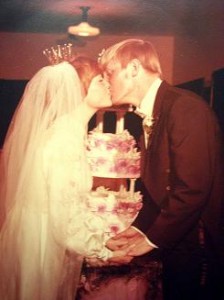One of Nate’s wise sayings was, “When you cry, it lets the sadness out.” Today some of my sadness came out. It wasn’t actually a “letting” though. It came out, even after I tried to stop it.
It was the beginning of a fresh week and almost the beginning of a new month. My goal was to dig into paper work that had been piling up. One “hot” item was the health insurance bill. It was due, and I knew I needed to make a change in the policy, now that Nate was gone.
After the insurance company made me wait on hold for 22 minutes, a real person finally spoke. “Policy ID? Name? Birthdate? Zip code?” She had irritation in her voice before I’d said a word.
When we finally got the formalities out of the way, she said, “How can I help you?” She said it as if she hated her job.
“My husband has passed away,” I told her, “and his name is still on the list of the insured. I’ll need to make a change.”
She must not have been paying attention, because then she asked, in an edgy tone, ”What kind of a change?”
“My husband doesn’t need health insurance anymore, because he has died,” I stated.
“Oh,” she said, and then she paused. Her voice melted into softness, and she said, “So you want to terminate his policy?”
With those words and her sympathetic voice, I started bawling. The poor girl could hardly go on with her script because of my boo-hooing, but in the end, she got the job done.
“Thanks for helping me,” I said, as we concluded. ”My husband used to take care of all this, and I’m trying to learn a lot at once.”
“I understand,” she said softly. “You’ll be getting a refund in the form of a check, and I do hope you can have a nice day.”
I sat and cried after we hung up, trying to figure out what had set me off. I’m learning there are two kinds of crying after a husband dies. The first is grief, and the second is self-pity. This morning I was crying from grief, I believe. The thought that Nate would never again need earthly health insurance was a power-packed reminder he was really gone. He had been a hawk about insurance and was generally over-insured. My terminating his policy went against his values and caused me to break down.
This afternoon I ran several errands, one of which was to the post office. The lady behind the desk in our small town knows of Nate’s death and asked, “How are you doing? I know it’s the same old question, but it’s a good one. How’s it going?”
“Some days are ok and others aren’t,” I answered but then hurried away before new tears could spill out. Those tears, I believe, were the poor-me tears of self-pity, and the minute I determined that, the crying stopped.
On my way home, a beautiful sun was setting, so rather than go straight back, I turned early and headed for the lake. Sitting in the car facing a gold and aqua sky, the tears started again. Maybe it was still about the health insurance policy or maybe it was the beautiful music playing “Great is Thy Faithfulness” on the radio, but I cried and cried, wetting six Kleenexes. Just as Nate used to say, some of the sadness was coming out.
I’m certainly not the first person to lose my husband to death. I don’t have young children to raise alone, and my life is relatively settled. But the old adage about a spouse being “my other half” becomes true after a couple has been married for decades. When two married people have grown to become one, it’s hard to go back to being two singles minus one. Nothing adds up right after that.
“A man will… be united to his wife, and the two will become one flesh. So they are no longer two, but one… what God has joined together.” (Mark 10:7-9 parts)



